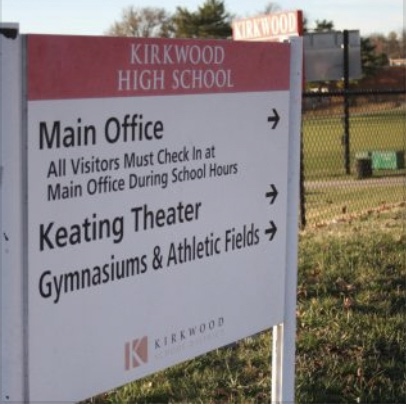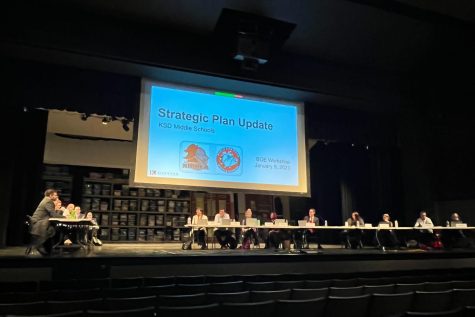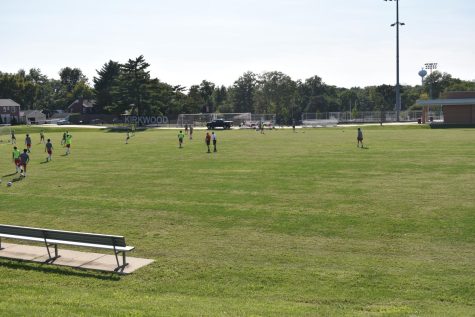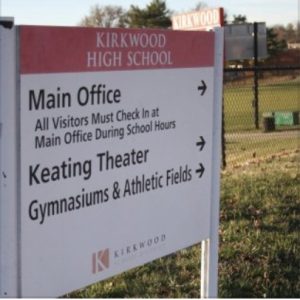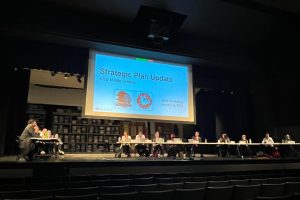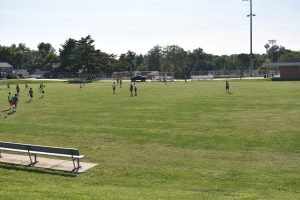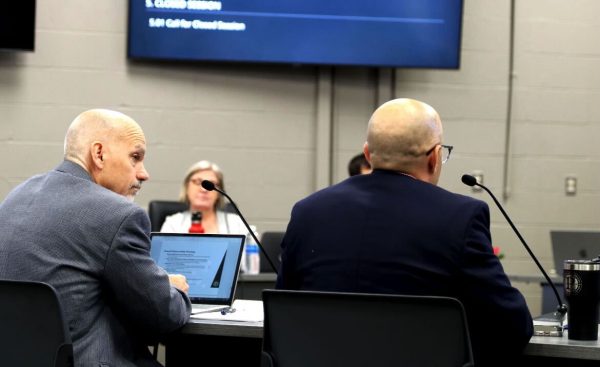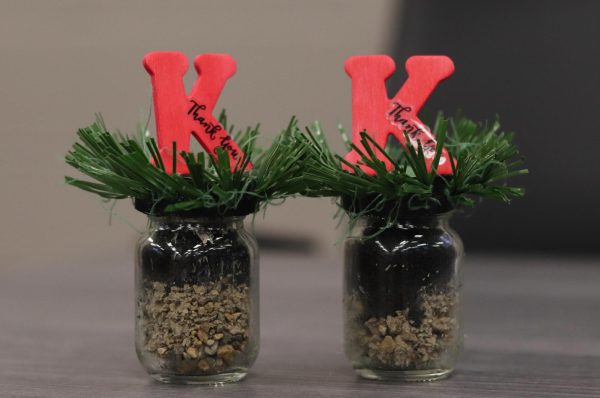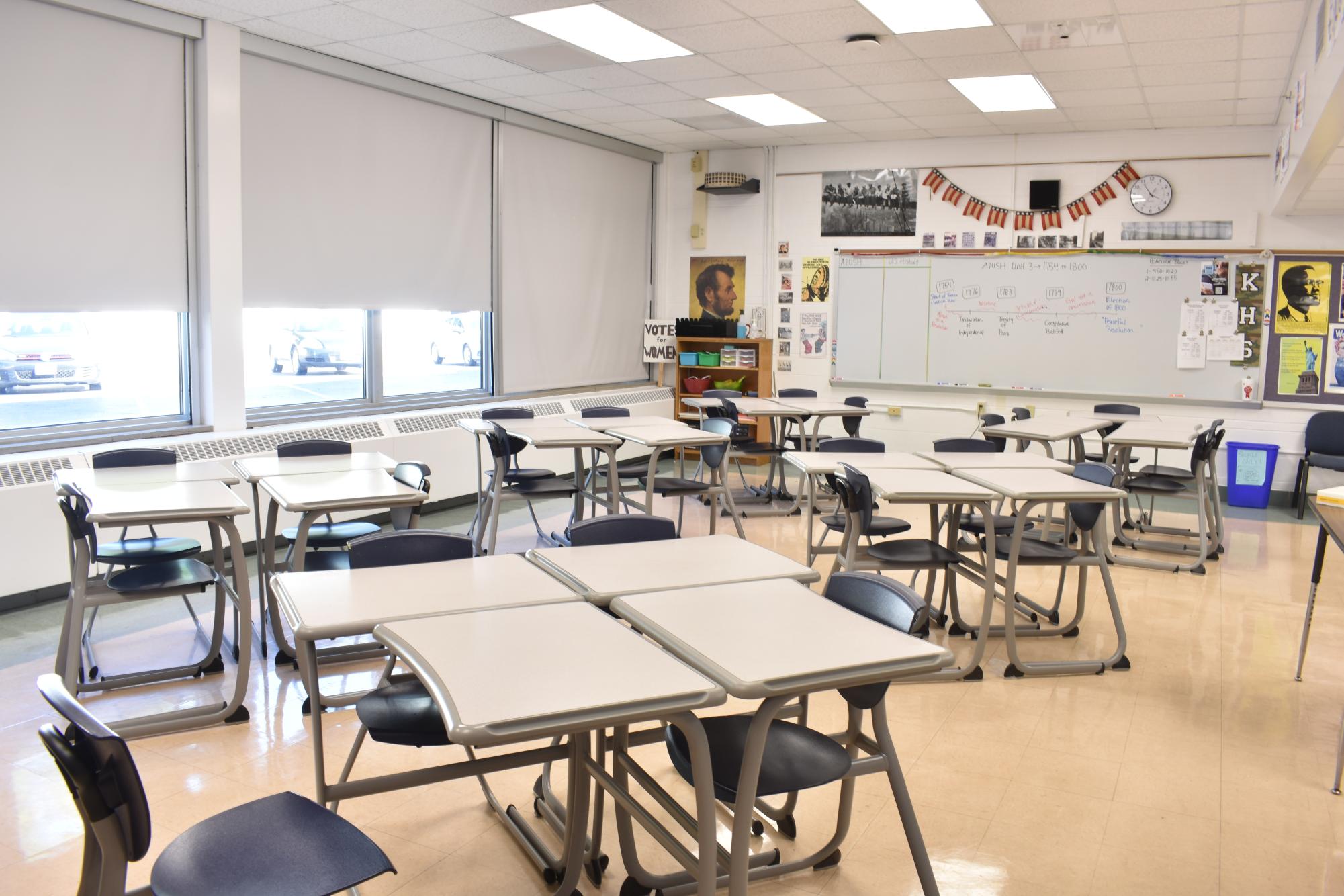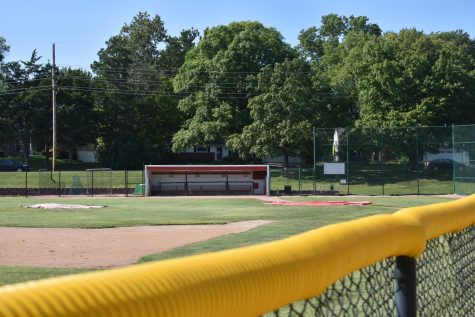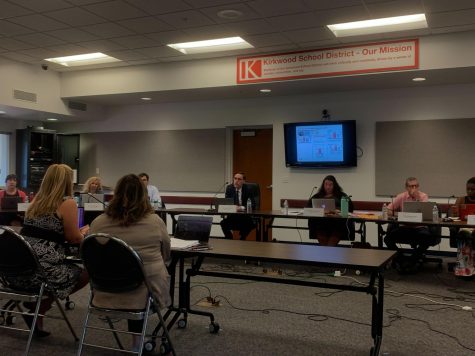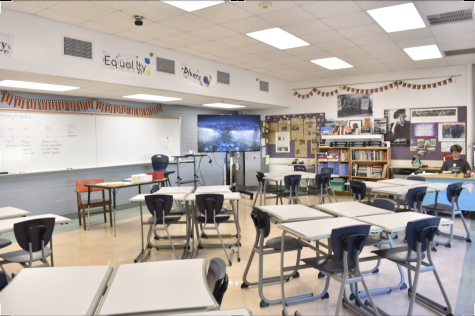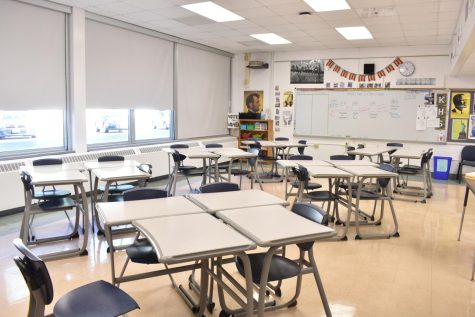BOE discusses SSD and kindergarten statistics
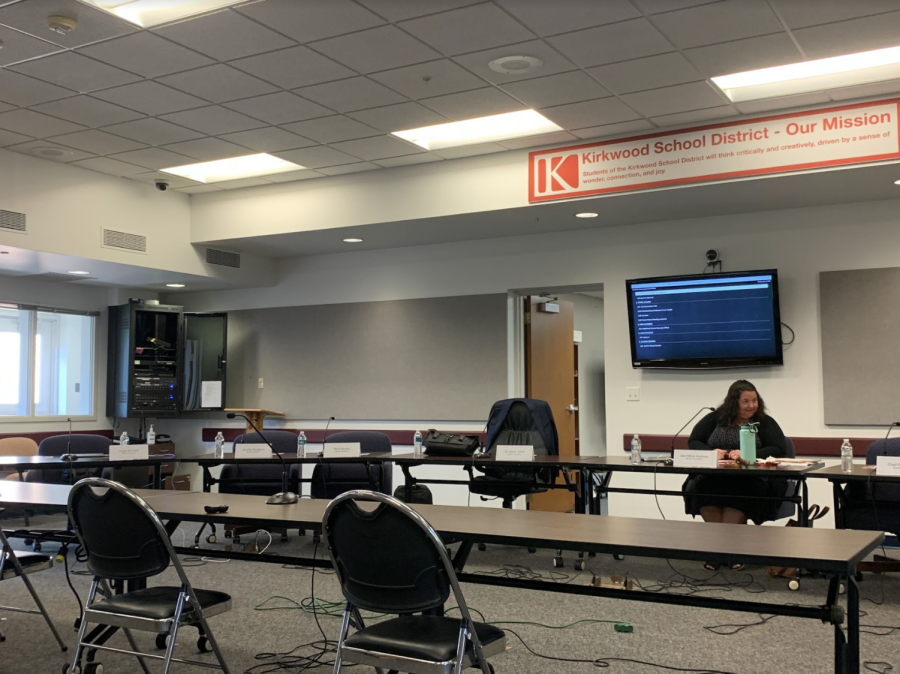
At a board meeting, one of the board members waits for the meeting to start.
Special School District (SSD)
This school year, the SSD and BOE intend to help all students with disabilities by continuing to provide a free, public education. As of now, this means being able to accommodate students who require a low or high restrictive learning environment.
“Some disabled students will need modified educations,” Dr. Taneal Davis said. “We need to ensure that they will get that.”
Over 774 students who attend SSD schools have been given the opportunity to have a variety of learning environments, and a majority of these students affected by restrictive environments are those with speech related disabilities or autism, who are the most common when it comes to IEP eligibility.
Of these 774 students who are IEP eligible, recent stats taken by the SSD claim that 88% of students with basic reading fluency and/or reading comprehension goals are demonstrating progress. And, 82% of students with emotional and/or social behavioral goals are demonstrating progress as well. The SSD presentation said that using research based curriculums and allowing the assistance of social and emotional coaches has helped IEP eligible students improve socially and educationally.
Kindergarten
Kindergarteners who attend Pre-K vs. those who don’t display different levels of performance in class. Although the waitlist for KECC is long and parents call years in advance to secure a spot for their child, some parents decide to place their child elsewhere. Some students don’t even attend Pre-K at all. Approximately 10% of students (between 40-50) went into Kindergarten without any Pre-K experience.
The reasons behind why students don’t attend Pre-K vary. Members of the board agreed there needs to be a new approach to providing Pre-K educational experience for young children.
“We need to look for more opportunities to expand [early childhood development] by 40 or 50 percent,” said a member of the BOE, “Without [financially burdening parents].”
Dr. Matt Bailey, assistant superintendent of student services, said some parents simply choose not to have their children attend KECC. Other preschools such as The Lab School are able to provide Pre-K experiences for young children. These children tend to perform better in kindergarten than students with no Pre-K experience at all.
Kindergarten teachers in KSD have revealed they prefer students to have basic learning skills such as coming to sit on the carpet during a lesson. In order for most students to have these abilities, Pre-K experience is most-likely required. Teachers and staff members have performed a series of assessments to see how students perform in the classroom. The results have shown that students without Pre-K experience tend to struggle more with letters, reading, rhyming words, etc.
Your donation will support the student journalists of Kirkwood High School. Your contribution will allow us to purchase equipment and cover our annual website hosting costs.
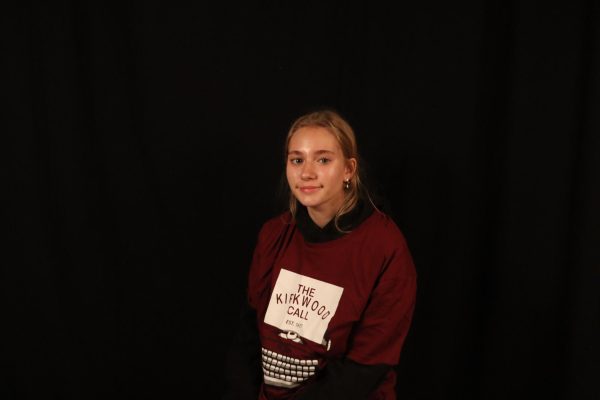
She/Her
Hobbies and Interests: reading, spending time with friends, watching movies and hiking
Favorite movie: Napoleon Dynamite
Favorite...
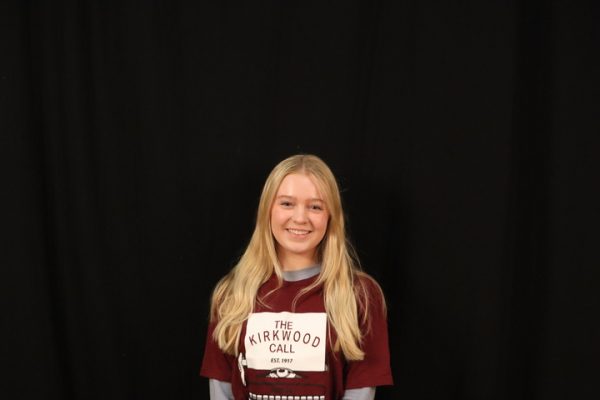
She/Her
Hobbies and Interests: dance, writing & spending time with friends and family
Favorite movie: Dirty Dancing
Favorite Quote: “May...
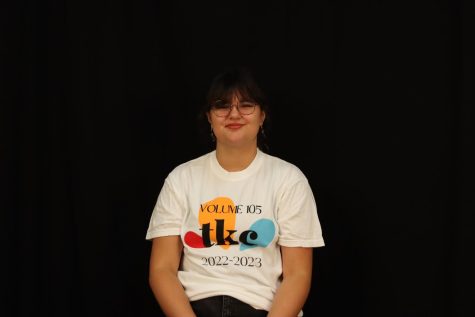
She/They
Hobbies and Interests: music, art, reading, collages
Favorite song: Mona Lisa by Mxmtoon
Favorite Quote: "We cannot become what we...


